








































The Farming Families, Age Media & Promotion
The Farming Families is distributed free exclusively to the farmers, ranchers and producers in rural Sioux, Plymouth and Lyon Counties. All rights reserved. Content in this magazine should not be copied in any way without the written permission of the publisher. The Farming Families assumes no responsibility for unsolicited manuscripts or photographs. Content in articles, editorial and advertisements are not necessarily endorsed by The Farming Families and Age Media & Promotion.
Orange City Family Medicine: 712-737-2000


Hospers Medical Clinic: 712-752-8800


Mill Creek Family Practice: 712-448-2000

Orange City Walk-In Clinic: 712-707-6070
Hospital/Emergency Room: 712-737-4984


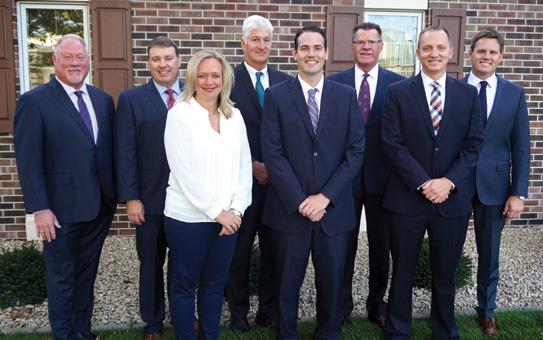
“Where we live was homesteaded in the late 1800s. The O’Hare’s came over from Ireland and planted roots here. There's a lot of history that we're sitting right on top of,” he said. Chris and his wife, Lindsey, built their house in 2017-18 on the exact spot where the O’Hare family had lived and where his father grew up. “I never really dreamed of living here. As we were starting to look for a place, we were going to try to build on an acreage. This opportunity came up and it just kind of came full circle with it.” The existing house had been abandoned for 50 years, but they’re enjoying the established

trees as well as two barns and two lilac bushes which are more than 100 years old.
Their home sits south of Maurice in Sioux County, but the greatest share of their farmland is in Plymouth County. “My mom grew up south of Granville, just into Plymouth County,” Chris said. “A few years ago, my brother and I had the opportunity to buy that farm. I think it's really cool to be able to farm the ground that my dad grew up on and the ground where my mom grew up. We’re happy to keep all of it in the family.”
Chris O’Hare Schlesser is happy his parents gave him the middle name O’Hare because it represents the ancestral family who homesteaded the land where he lives and farms today.Lindsey and Chris Schlesser with their daughter, Margo. Pictured is one of two barns on their homesite that are more than 120 years old.
Chris’ brother, Ben, and his wife, Kris, live in Independence, Iowa, on the other side of the state. But they’re partners in the farm operation. “They make it back in the spring and fall to help with planting and harvest. And together we've got a registered Red Angus herd of cows. I've got some cows here and they've got cows over there as well.” Ben works as an engineer for John Deere Corp. in Waterloo and Kris is a large animal veterinarian. “So Kris does all the AI’ing of our cows and we also do a fair amount of embryo transfer. So she takes care of all that work for us. It's worked out really well for everyone.”
Chris first bought a Red Angus bred heifer when he was 10 or 12 years old. Most of the family’s herd were Black Angus, Hereford or some kind of Angus cross. “I wanted something that I could pick out in the herd that was mine.” He bought his first registered Red Angus heifers in 2010. “They're very docile, good mothers and grow good. We continue to focus on the maternal traits. One of the things I think is most important when you're raising cattle and are working with them is that they're not aggressive to you when you’re handling them. So that's one of the first criteria we have. Red Angus are generally a very quiet breed.”
The majority of the stock is registered and they sell bulls through a cooperator program with Ludvigson Stock Farms of Montana and market the rest as commercial feeder cattle.

“We’re part of a bull syndicate where we purchased a high end Red Angus bull that is our semen stud. So we're continuing to grow the seed stock side of the business. We'll be sending bulls out for Ludvigson’s next spring's sale.”
There is one Hereford in the herd. Chris and Lindsey’s 3-yearold daughter, Margo, said, “I like white-faced cows.” So Chris had to buy her a Hereford. “So she's got a Hereford cow that'll have a calf next spring. She likes those because she can spot them in the herd. Just like how I got started, she’ll probably end up with a herd of Hereford cows or something down the line. Margo also has a big herd of farm cats. That's her main operation now.” Chris is hopeful that Margo or her soon-toarrive little sister will carry on the family’s farming legacy in the future.
Chris’ parents, Tom and Rose Schlesser, are retired but always ready to help out Chris and Lindsey. Rose takes care of Margo when daycare isn’t available and Tom covers chores when Chris is on the road.
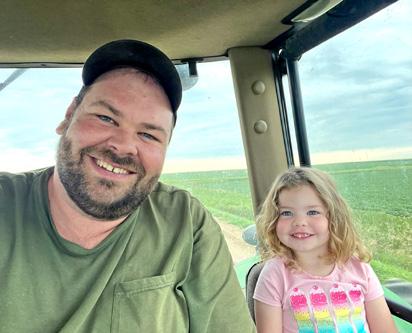



Off the farm, Chris is the Iowa and southern Minnesota territory manager for Landoll Corp., a family-owned, Kansas-based manufacturer of farm equipment such as field cultivators, chisels, rippers, vertical tills, grain drills, and seeding equipment. Landoll also has divisions which manufacture flatbed trailers to haul equipment, livestock, grain, skid steer hauling and other applications. In addition, Landoll has government contracts for equipment such as industrial deicers, forcible entry fire fighting trucks and trailers which have hauled cargo such as the space shuttle and MOAB (mother of all bombs).



Lindsey is vice president of human resources for Primebank, based in Le Mars. She grew up on the family farm by Eagle Grove in north central Iowa, which continues to be operated by her parents and brother. Chris said, “We make it over there and help back and forth some during the busy times a year, chopping silage or things like that.”
Lindsey graduated from the University of Northern Iowa with a degree in business management with an emphasis on human resources. She was working for a large banking corporation in the Des Moines metro area after







Donations and other support provided annually to multiple FFA programs, local fire departments, town projects, livestock shows, school programs.


college. She said, “When we were looking to move here, Chris was talking to somebody at the bank about our house loan. I was looking for a position and they were looking for somebody to step into H.R., so the timing was perfect.”
She and Chris met while he worked in Minnesota and Wisconsin for Kinze Manufacturing, “I wanted to be able to move back home from Minnesota and Lindsey was ready to move back to a more rural community,” he said. Chris was able to land the position with Landoll which allowed him to be based at home and operate the family farm.

One of the things the pair has in common is a love for Iowa State University athletics. While Lindsey went to UNI, she grew up in a strong ISU family and Chris graduated from ISU with a degree in Ag Systems Technology, in the Ag and Biosystems Engineering Department. They have season tickets to ISU football, although Lindsey will probably miss out this fall since daughter #2 is due on Sept. 23.
In addition to ISU football, the Schlesser’s enjoy taking road trips. On their honeymoon, they made an eight-day loop through Memphis and New Orleans and Galveston, Texas. In 2018, they traveled to Ireland and visited the area where the O’Hare family originated.
“Growing up, both our families thought it was important to take vacations, so we're trying to keep that tradition going,” he said. “It's great to farm and do our other jobs, but if you can't enjoy some time away from the farm and work, it's not doing you any good.”





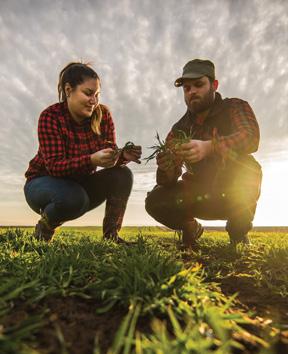




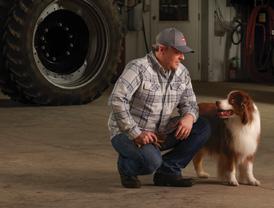



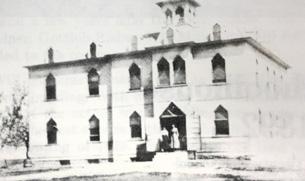

The first Lester schoolhouse was built in 1892. In Lyon County, there 129 school houses valued at $90,500. One hundred and eighty-six were examined for teaching certificates. Eight persons held a state license. There were 26 rooms in the graded schools – 10 in Rock Rapids; three in Larchwood; two in Lester; two in Inwood; two in George; two in Little Rock; three in Doon; and two in Alvord.

The first school house was built about one mile west of the Lester cemetery. In the winter months, school was held above the store which was a building on the corner of Main and Thomas. Later a two-room school was built and the first teacher was Miss Ada Pingrey. She taught six or seven years after having attended Cornell College.
In 1902, an addition of two rooms was made to the school house. As it advanced a high school became a part of it. In the 1920s and 1930s, activities were held in the old Opera House. No showers and no drinking fountains, but there was a powerful old coal furnace. There were plays and a school song, new home economics classes, and basketball games. School consolidation began in earnest in the 1950s. Changing demographics and a desire for expanded learning and extracurriculars were some of the forces moving consolidation forward. Beginning in the fall of 1966, Lester – along with Inwood, Larchwood, and Alvord – became the new West Lyon School District. Buses pulled away from the Lester school for the last time in May 1967.


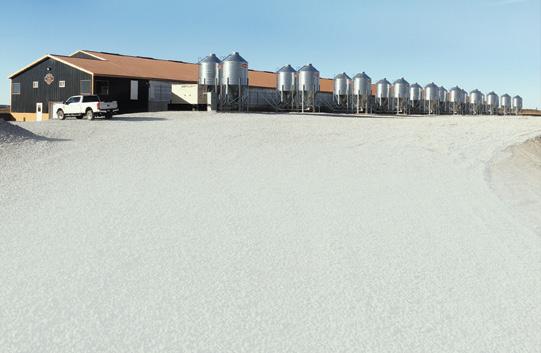





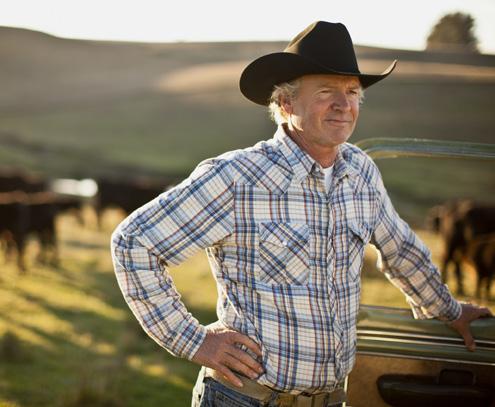


 LAZY RIVER
PHOTO BY JOEL SCHWADER Facebook.com/joelschwader1
LAZY RIVER
PHOTO BY JOEL SCHWADER Facebook.com/joelschwader1

A lot of young farmers keep adding irons to the fire: More equipment, more land, more livestock – and a better and more profitable farm business is an admirable goal. But, of course, if you have too many irons in the fire, there’s a danger of flaming out. For the Ethan and Angela McKenney family, a long absence last year helped lead to pulling a few irons from the fire this year.
Angela was deployed to southwest Asia last year with the Air National Guard. That left Ethan home with a farm and trucking company to run, cows to wrangle, cattle to feed, custom baling, custom chopping –and, most importantly, three young children to care for. Three irons he’s pulled out of the fire right

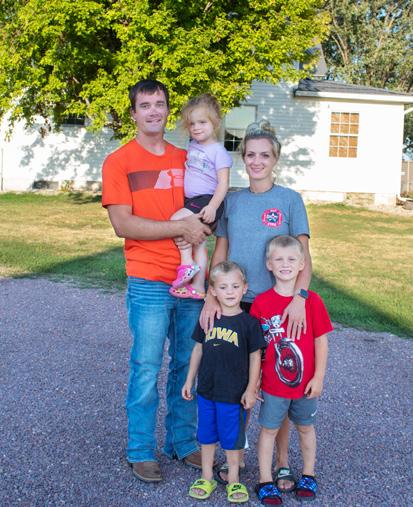
now are the custom baling and his small cow-calf and cattle feeding operations.
The couple’s three children are Brody, 6, Jaden, 4, and Macy, 2. Each has a distinctive personality, Angela said. “Brody is the sweet and kind-hearted one. But he’s also the instigator. Jaden, he is the daredevil. He gets in trouble all the time because of what Brody tells him to do. Macy is the sassy pants and the mini-mom. She’ll be in her crib and hear the boys wrestling downstairs or whatever, and she’ll holler at them: ‘Jaden! Brody! Get to sleep!’ It's so cute.”
Ethan said, “Brody’s driving the 4-wheeler all around, so hopefully he’ll help out in couple more years.” Angela added, “Macy and Jaden want to help, too.”
They enjoy joining Ethan’s parents for camping and fishing at Lake Shetek; plus like to snowmobile when there’s snow here or when they can get to the Black Hills. The family lives just east of West Lyon Schools in the house where Ethan grew up with his parents, Randy and Pam McKenney. Randy and Pam built a new home southwest of West Lyon Schools.
“Basically I’ve farmed forever. I guess the first official year I started
crop farming was in 2010. I sharecropped with Grandpa,” Ethan said. “I farm with my dad and my uncle, Rory McKenney. I've helped them my whole life. Ever since I was old enough to drive, I was doing whatever needed to be done.”
He had his own cow herd starting at age 19. “I actually just sold them about two months ago. I lost a few pastures and kind of decided if I didn’t have enough to make it worth my while, I’d wait for a little while. We’ve got some family ground that could hold 30 cows, but I think I’ll wait until the boys are a little bigger
and can help out a little bit. The cows always seemed to get out when I was gone trucking in another part of the country. I also had fat cattle here, but I didn't keep enough corn and, right now, I don’t really want to feed $8 corn. So I’m kind of holding off.”

Out of high school, Ethan worked as a mechanic for a few years and worked at a couple of feedlots before starting his trucking business 4½ years ago. He hauls grain, bean meal and distiller’s ingredients plus trucks hogs and cattle from local producers to Sioux Falls, Sioux City,

Providing Feed and Vet Supplies for over 30 years. We also provide consulting services for feedlot cattle and cow calf pairs.

or anywhere that is need around the region. A local employee also keeps busy driving for McKenney Trucking and Ethan’s dad drives for him as needed, but mostly during the winter.


“Farming is our priority. Dad and Rory fill in the gaps doing construction in the summertime and I fill in the gaps trucking. In the fall I drive a big chopper for a custom harvesting group.” His dad and uncle quit milking in 2001, which is when they started doing construction on top of farming. In the summer months or other times he wasn’t in school, Ethan helped building houses and shops and sheds.
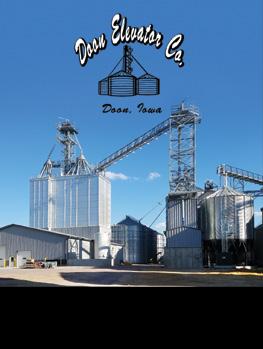
Ethan and Angela have known each other pretty much their whole lives. She grew up at Alvord on an acreage owned by her parents, Paul and Sue Fluit. According to Angela, “We were on the same school bus and everything. I was the first one on in the morning and then the last one off at night. He was always the last-on and first-off.” Ethan said, “I rode bus for about four minutes and she rode it for an hour.” The pair started dating after he graduated from West Lyon in 2012. She graduated a year later and they were married in 2014.
Angela studied business at Southeast Technical College in Sioux Falls and joined the Air National Guard. “My dad was always in the Air National Guard the whole time I grew up. And I thought it looked cool. So I joined when I was still in high school.” Two of her three sisters joined the guard after her. She wouldn’t mind going active duty in the guard, but it’s not
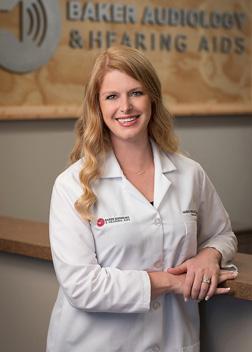





a fit for their lifestyle right now. She takes time away from the farm and the kids two mornings a week to clean homes in Rock Rapids and east Sioux Falls.
When Angela was gone on deployment from Jan. 6-July 29, 2021, Ethan stuck close to home. “Last year I had fat cattle here just because I couldn't go anywhere. I trucked local pigs and grain and that was about it because I had the kids all the time. So I’d feed cattle before the kids woke up; then bring them to daycare; come back and jump in the truck and drive truck until five or whenever. I’d go get the kids; come back, feed cattle again; bed them and then scrape the yards or whatever I had to do,” he said.
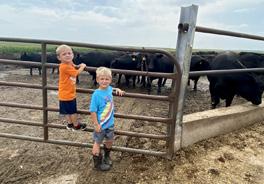
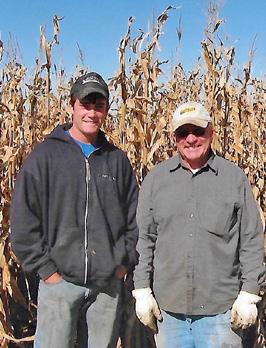
After going full speed last year with work and the kids, he realized he had to slow down a bit. “I had too many irons in the fire. I just kind of downsized, giving up my cows and the custom baling I’d been doing since high school. I’m just focused on trucking and farming now.” He still does a little bit of custom spraying and is part of a custom chopping crew as time allows. When livestock was part of the equation, Angela said, “You’d never see him. Cattle on weekends and trucking on weekdays. Then the cattle would be out on weekends, so we’d spend the whole weekend putting them in and re-fencing. It was a lot.”
One change has made the trucking side a lot easier: He converted the old barn into a shop. Previously the barn had a loft and was set up for livestock and it was difficult to even pull a 4020 tractor inside. After gutting the inside of the barn, he reconfigured the bracing. The walls now go up 14 feet high on the sides and then angle up to a total height of 19 feet. “The actual shop part is like 31 by 50. It's not huge and it’s not perfect, but it's well-used. I’ve got space now to work on the trucks. And in the wintertime I can bring all three trucks inside pretty easily. The first year when I didn’t have a shop, I hated trying to get the truck started on winter mornings and then laying around for an hour waiting for them to warm up. My dad wishes he would have remodeled the barn 20 years ago because it didn't cost much and it keeps the look of the old barn.”


Diversifying income streams is a goal for many farm families in northwest Iowa. For most farms, corn and soybeans are givens. Feeding cattle or hogs are common additions to the mix. The Kellen family cast a wider net and added a little pop to their income diversification.
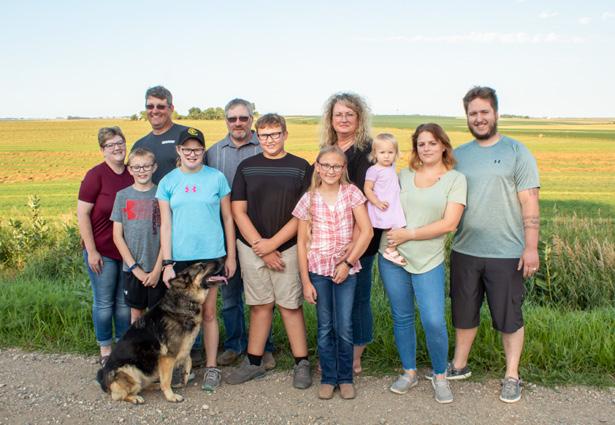
Tony and Gina Kellen and Rick and Gwen Kellen farm near Alton. Together they grow corn and soybeans plus feed hogs and cattle. In addition, alfalfa is a significant crop for them.
“We just like hay. It’s a fun crop to harvest and put up. It's challenging. It's a good cash crop and it's good for the soil,” said Tony. The farm was recognized as “Outstanding Conservation Farmer” in Sioux County and Iowa Region 1 in 2012.
The Kellen’s hay customers include dairies, horse farms and feedlots. “Most of it goes to dairies. But we’ve
also got customers like a little old lady down in Texas. Every year, she buys it by the truckload from us and then sells it by the bale to farmers down there who have cow-calf pairs or horses.”
Rick said, “Some people think we're crazy for what we do.” But demand is strong in the southern plains of Kansas, Oklahoma and Texas for the hay produced here. Tony said, “I was in Kansas last month and, coming back, I bet I saw 30 hay trucks headed south on Highway 81 running out of South Dakota.”
They take their expertise in hay further by custom seeding alfalfa and by custom mowing and baling. The custom work started 20 years ago as Rick was finishing college at Briar Cliff University. At the time, Tony was farming in partnership with their parents, Joe and Elizabeth Kenney, and additional income

was needed in order to pull a third family into the mix.
One thing led to another very quickly. “We were one of the first
upgrading to balers with net wrap. We started making money at it, so we just kept growing it.” The resulting business was The Fine Twine Co. which the family operates
YOU WILL ALWAYS BE CONNECTED TO YOUR GRAIN STORAGE. MONITORS YOUR GRAIN FROM THE PALM OF YOUR HAND. SIMPLE AND ACCURATE. FREE TECH SUPPORT FOR LIFE.




There is nothing more important than protecting your grain harvest. Tri-States Grain Conditioning systems will help you remotely monitor your grain, save on energy costs and improve your overall grain storage.
The diversity of their income stream got more colorful and a lot louder in 2017 when the family, including their brother Karl, lit the fuse on a fireworks business. Comments by their wives about the fireworks business also sizzle. Gina said, “They thought they would take on something more as if we're not busy enough as it is.” Gwen said, “I’ve learned more about fireworks in the past five, six years than I care to know about them.”
Around the interview table, there were a lot of groans about their first year in the business when they were operating out of a tent and on flatbeds, and they were hit
with torrential rains. The second year, they graduated from a tent to a building, but the building didn’t have air conditioning. When they sold fireworks during the 2018 Christmas-New Year’s season, there was no heat in the building either. Gwen said, “It was 40 below outside. I sat in there and I had on a long sleeve shirt, a sweatshirt, a fleece jacket, a winter coat and a blanket with a space heater at my feet.”
Rick joked, “You want to talk about a diverse clientele? Some people are deathly afraid of fireworks and some people can't get enough of them.” Tony added, “There’s people in all walks of life who love fireworks. You’ve got doctors and lawyers and everybody else – deep down inside of them, everybody
must have a little bit of pyro in them.” Gwen said, “There’s a lot of pyromaniacs in the area.”
Tony said Alton area residents have been very supportive. “In the town of Alton on Fourth of July, the town is lit up all night long.” Gina said, “It's neat because you can just sit out here in our parking lot and watch them all.”
Tony and Rick’s grandfather and father had a 20-cow dairy, but they quit milking in 1962, the year Joe and Liz got married. They fed cattle and the family had a farrow-to-finish hog operation until they sold the sows in 1995. But they continued to finish cattle and put up new hog barns to finish iso-wean pigs in 1997.
In 1995, Tony graduated from Northwest Community College with a degree in ag business management. He spent a good share of 1996 on a wheat harvesting crew. “We started in Frederick, Okla., and chased wheat all the way to a little town in North Dakota.” It was an extremely wet year and they spent a fair share of their time sitting around drinking the boss’ beer. “We packed up and moved to Kansas – and it kept raining and raining. Finally we got to North Dakota and worked our butts off up there.”
After the wheat run, Tony returned to farm with his dad. However, when the hog market was tanking in 1998, he started taking night courses at Briar Cliff and eventually earned a bachelor’s degree in business administration. “I didn't know if I'd be farming or not with that mess, but we pulled through somehow.”
Rick joined the partnership in 2002 and, over time, they slowly bought out their dad. “When the tractors started driving themselves, he quit crop farming. That was around ’12 or ’13,” Tony said. However, Joe kept feeding cattle and hogs almost until the day he died in spring 2018.


Joe may have intervened on their behalf to help the brothers win an Ag Partner’s corn yield contest that year (313 bushels to the acre on one 72-acre plot). Liz worked many years for the Sioux County Farm Service Agency. Rick said, “It's amazing how many people ask about her and remember her from behind the counter and ask her how she's doing yet.” Gwen said, “Joe was a man of strong faith. He lectured at church for about 50 years. He was one of the first lay ministers.” Rick said, “He taught us you’ve got to step up and volunteer.” Rick is president of the Spalding Catholic School board and represents Spalding on the board of Gehlen Catholic Schools.

Tony is a past member of the Siouxland Energy Cooperative board and he served on the Remsen Farmers Coop board for about 10 years. He was recently invited to participate in the “10,000 Small Businesses” program, an international initiative of Goldman Sachs and the Goldman Sachs Foundation which aims to provide 10,000 small businesses with assistance ranging from business and management education and mentoring to access to capital and business support services.
Gina is the office manager at The Fine Twine Co. and has driven the Spalding school bus for about five years. “One bus, one driver, no substitutes,” she said. “It’s not bad. The
Spalding kids are pretty good for the most part and there's just a small number of them. I couldn't do it for a big school district.” Gina grew up on an acreage near Primghar.


Gwen teaches at Kiddieland Preschool in Hawarden. She grew up on an acreage at Spalding, a small town on the eastern edge of the Nebraska sandhills. She and Rick met via eHarmony.com when she was an early childhood consultant for the Area Education Agency in Council Bluffs. They got married in 2007. They have two children, Olivia, 13, and Jack, 11.
Tony and Gina were married in 2008 and have two kids at home, Kody, 12, and Masie, 10. Son Lucas and his wife, Ciara, live in Le Mars where he works as a diesel mechanic for Schuster Co. They have daughter, Caroline, who is 18 months old.
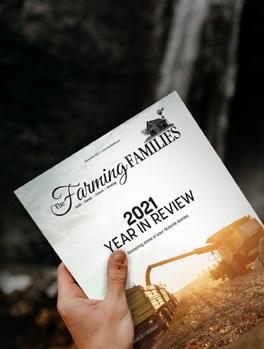
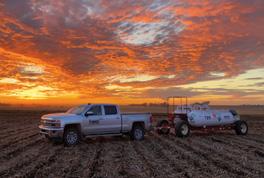

Working together as brothers is not always peaches and cream. “But we haven't killed each other yet,” Rick said. Tony said, “We have a difference of opinions, there's no doubt about it. You’ve just got to stay focused on the end game.”
He concluded: “I guess probably the biggest thing I took away from Dad was ‘Don't jump into a decision too quickly.’ Stop, think about it, and try to make a good, solid, calculated decision. At the end of the day, you just have to make a decision. If it was wrong, you just live with it.”

storytelling and strategy group of skilled professionals that creates media to capture your brand or business story or family farm history.




The newest member of Baker Audiology & Hearing Aids is Dr. Libby Benson. Dr. Benson joined our team in May 2022, following her graduation from the University of Northern Colorado with her Doctorate of Audiology. Originally from Pipestone Minnesota, she received her bachelor’s degree in Communication Disorders from the University of South Dakota before moving to Colorado to complete her graduate education. In 2021, she was delighted to return to her old stomping grounds to fulfill her yearlong residency at the Sioux Falls VA Medical Center. Dr. Benson is now eager to provide hearing healthcare to patients in the private sector. Her clinical interests include diagnostics, hearing aids, and implantable devices. Dr. Benson enjoys all aspects of hearing aid fitting, from candidacy to follow-up. Building relationships with her patients is her favorite part of the job.
Dr. Benson and her husband, Nathan, are the parents to two dogs: Ruby and Theo. Outside of the office, you can find Dr. Benson working on home improvement projects, traveling, spoiling her niece and nephews, and spending time with friends and family.


You’re
Cenex®


From tasteofhome.com
712-737-3339
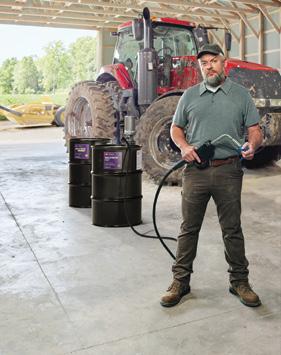



CUPCAKE INGREDIENTS:
• 1 package yellow cake mix (regular size)
• 2 tablespoons butter

• 4 medium tart apples, peeled and finely chopped (about 4 cups)
• 3/4 cup packed brown sugar
• 1 tablespoon cornstarch
• 1 tablespoon water
FROSTING INGREDIENTS:
• 1 cup butter, softened
• 3 cups confectioners' sugar
• 2 tablespoons heavy whipping cream
• 1 teaspoon vanilla extract
• 1-1/2 teaspoons ground cinnamon
• Thinly sliced apples, optional
DIRECTIONS:
1. Prepare and bake cake mix according to package directions for 24 cupcakes; cool completely.
2. In a large skillet, heat butter over medium heat. Add apples and brown sugar; cook and stir until apples are tender, 10-12 minutes. In a small bowl, mix cornstarch and water until smooth; stir into pan. Bring to a boil; cook and stir until thickened, 1-2 minutes. Remove from heat; cool completely.
Give
712-476-2172
3. Using a paring knife, cut a 1-in.-wide cone-shaped piece from top of each cupcake; discard removed portion. Fill cavity with apple mixture.
4. In a large bowl, combine the 5 frosting ingredients; beat until smooth. Frost cupcakes. If desired, top with apple slices to serve.
COMPLACENCY IN THE PANTS.
only as good as your equipment.
Maxtron® Diesel Engine Oil gives you the smartest oil for the toughest conditions, so you can be your best all season long.










